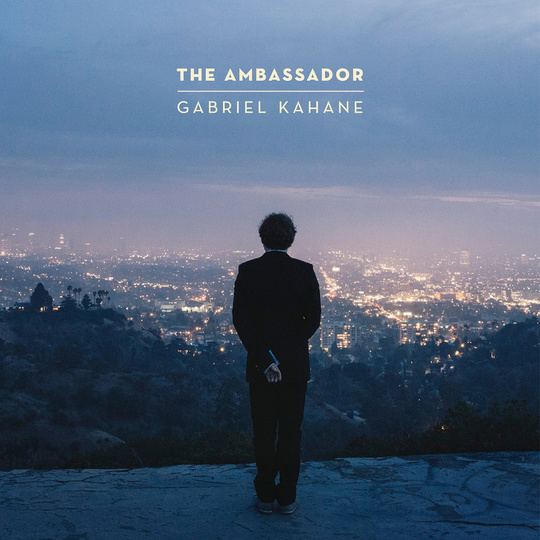On The Ambassador Gabriel Kahane assumes the role of detective, uncovering the often dark underbelly of the ‘city of angels’; peeling back the glossy veneer to reveal its stony foundations. Each track on the album is inspired by individual addresses in Los Angeles and appropriates characters as diverse as Mildred Pierce and Roy Batty for source material. Musically the album also casts a wide net, with no one genre settled on for more than fleeting moments. It’s a tour of the city like no other.
Of course many of the characters we are familiar with. In ‘Veda (1 Pierce Dr.)’ Kahane imagines himself as the notoriously duplicitous femme fatale Mildred Pierce of James M. Cain’s eponymous novel. His reimagining owes more to the film adaptation in which Joan Crawford’s Mildred initially protects her murderous daughter only to eventually hand her in to the authorities, “child, I'd rush to turn myself in and/claim that it was my sin to spare you.” Kahane charts complicated relationship with delicacy and empathy reflecting the deep maternal instincts that drive her to indulge her daughter’s repugnant behaviour: “you look down on your mother who loves you/you take without grace - though it smarts -I don't mind.”
He commandeers another iconic Hollywood character, Rutger Hauer’s Roy Batty from Blade Runner, to explore the streets and rooftops of LA as a replicant on ‘Bradbury (304 Broadway)’. The sweeping strings and piano elicits a similar feeling of sadness as the ‘time to die’ scene in the movie. It’s indicative of the huge cinematic sweep of the album that glides effortlessly from place, time and character whilst retaining its narrative consistency.
All the characters Kahane evokes are of the lost soul variety, and none more tragic than the tale told on ‘Empire Liquor Mart (9127 S. Figueroa St)’. Kahane morphs into Latasha Harlins, a 15-year-old African-American girl shot to death in 1991, a year before the LA Riots. With the a cappella blues inflected opening through glitchy beats, soulful vocals and undulating strings Kahane unveils the sad injustice of a wasted young life: “why should they give a fuck some angry little black girl took a bullet.” Its epic wandering quality is reminiscent of Sufjan Steven’s own geographically-focused efforts, which is perhaps unsurprising as Kahane is responsible for the string arrangements on a couple of his records. It’s an epic track who’s achievement is to elicit an emotional response without resorting to sentimental button pushing. Instead Harlins' is left to speak honestly, simply and devastatingly: “It was never so bright when I was young/I was too young to die.”
Kahane plucks stories both real and imagined from an array of decades and no sooner are we in the Nineties than we are shifted abruptly back to Thirties/Forties LA and the hardboiled crime fiction of Raymond Chandler. ‘Musso and Frank (6667 Hollywood Blvd)’ is an old steakhouse that Chandler used to frequent and where Kahane chooses to set his tale. Its a jazzy horn led number full of the boozey smokey swagger of the era. Then he drags us back to more recent times with ‘Villains (4616 Dundee Dr.)’ that’s at one minute on a loose lounge schtick only to break into a jaunty little chorus all the while referencing Pulp Fiction and Die Hard. Its also a lighter moment of comic nostalgia: “back then Bruce willis had some hair/he smoked in airports no one cared.”
‘Griffith Park (2800 E. Observatory Ave.) an equally chirpy little number, and has one of the records most prepossessing melodies. But ultimately most of the compositions have a melancholy undercurrent which seems befitting of the city’s many fables of trampled dreams and faded glories. Even if imagined these are the real stories; free of Hollywood’s sparkle and whitewashing bastardisation. Kahane has created an extraordinary album who’s scope is wide yet it retains an intimacy, avoids prosaic impressions and instead creates poetic dramas. He brings his characters to life through musical inventiveness with a solid emotional weighting - all in all a great accomplishment.
-
8Bekki Bemrose 's Score






















